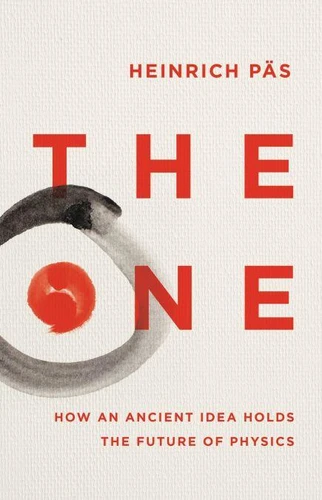The One. How an Ancient Idea Holds the Future of Physics
Par :Formats :
Disponible dans votre compte client Decitre ou Furet du Nord dès validation de votre commande. Le format ePub protégé est :
- Compatible avec une lecture sur My Vivlio (smartphone, tablette, ordinateur)
- Compatible avec une lecture sur liseuses Vivlio
- Pour les liseuses autres que Vivlio, vous devez utiliser le logiciel Adobe Digital Edition. Non compatible avec la lecture sur les liseuses Kindle, Remarkable et Sony
- Non compatible avec un achat hors France métropolitaine
 , qui est-ce ?
, qui est-ce ?Notre partenaire de plateforme de lecture numérique où vous retrouverez l'ensemble de vos ebooks gratuitement
Pour en savoir plus sur nos ebooks, consultez notre aide en ligne ici
- Nombre de pages368
- FormatePub
- ISBN978-1-5416-7484-4
- EAN9781541674844
- Date de parution09/01/2023
- Protection num.Adobe DRM
- Infos supplémentairesepub
- ÉditeurBasic Books
Résumé
A "fascinating [and] provocative" argument by a particle physicist-marshalling a "heady mix of history, philosophy and cutting-edge theory" (Wall Street Journal)-for monism, the ancient idea about the universe that says, All is One In The One, particle physicist Heinrich Päs presents a bold idea: fundamentally, everything in the universe is an aspect of one unified whole. The idea, called monism, has a rich three-thousand-year history: Plato believed that "all is one" before monism was rejected as irrational and suppressed as a heresy by the medieval Church.
Nevertheless, monism persisted, inspiring Enlightenment science and Romantic poetry. Päs aims to show how monism could inspire physics today, how it could slice through the intellectual stagnation that has bogged down progress in modern physics and help the field achieve the grand theory of everything it has been chasing for decades. Blending physics, philosophy, and the history of ideas, The One is an epic, mind-expanding journey through millennia of human thought and into the nature of reality itself.
Nevertheless, monism persisted, inspiring Enlightenment science and Romantic poetry. Päs aims to show how monism could inspire physics today, how it could slice through the intellectual stagnation that has bogged down progress in modern physics and help the field achieve the grand theory of everything it has been chasing for decades. Blending physics, philosophy, and the history of ideas, The One is an epic, mind-expanding journey through millennia of human thought and into the nature of reality itself.
A "fascinating [and] provocative" argument by a particle physicist-marshalling a "heady mix of history, philosophy and cutting-edge theory" (Wall Street Journal)-for monism, the ancient idea about the universe that says, All is One In The One, particle physicist Heinrich Päs presents a bold idea: fundamentally, everything in the universe is an aspect of one unified whole. The idea, called monism, has a rich three-thousand-year history: Plato believed that "all is one" before monism was rejected as irrational and suppressed as a heresy by the medieval Church.
Nevertheless, monism persisted, inspiring Enlightenment science and Romantic poetry. Päs aims to show how monism could inspire physics today, how it could slice through the intellectual stagnation that has bogged down progress in modern physics and help the field achieve the grand theory of everything it has been chasing for decades. Blending physics, philosophy, and the history of ideas, The One is an epic, mind-expanding journey through millennia of human thought and into the nature of reality itself.
Nevertheless, monism persisted, inspiring Enlightenment science and Romantic poetry. Päs aims to show how monism could inspire physics today, how it could slice through the intellectual stagnation that has bogged down progress in modern physics and help the field achieve the grand theory of everything it has been chasing for decades. Blending physics, philosophy, and the history of ideas, The One is an epic, mind-expanding journey through millennia of human thought and into the nature of reality itself.



